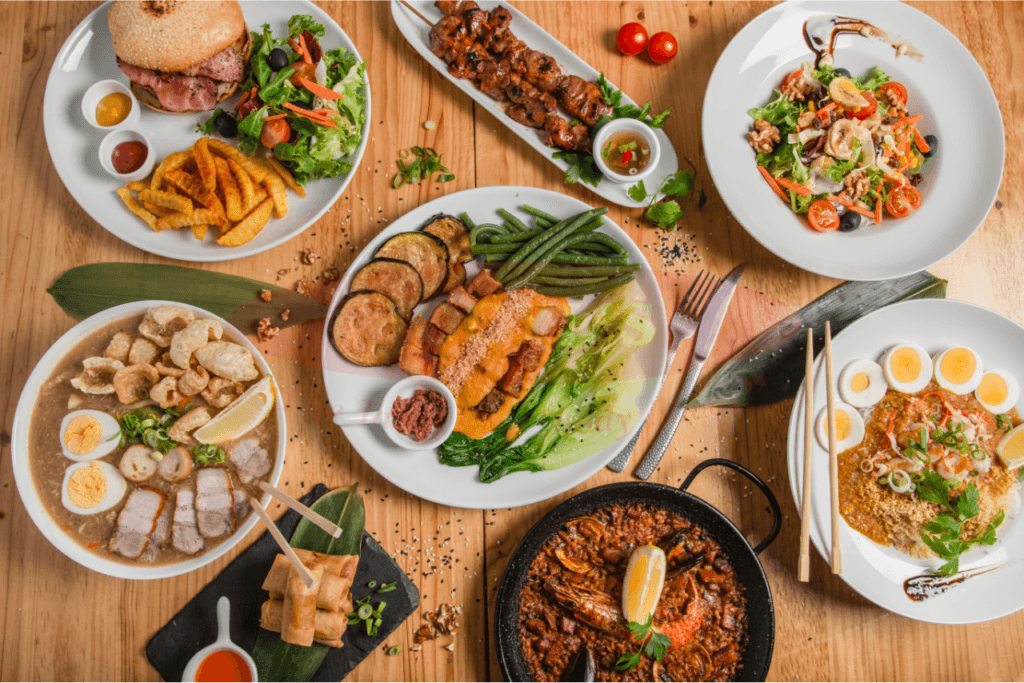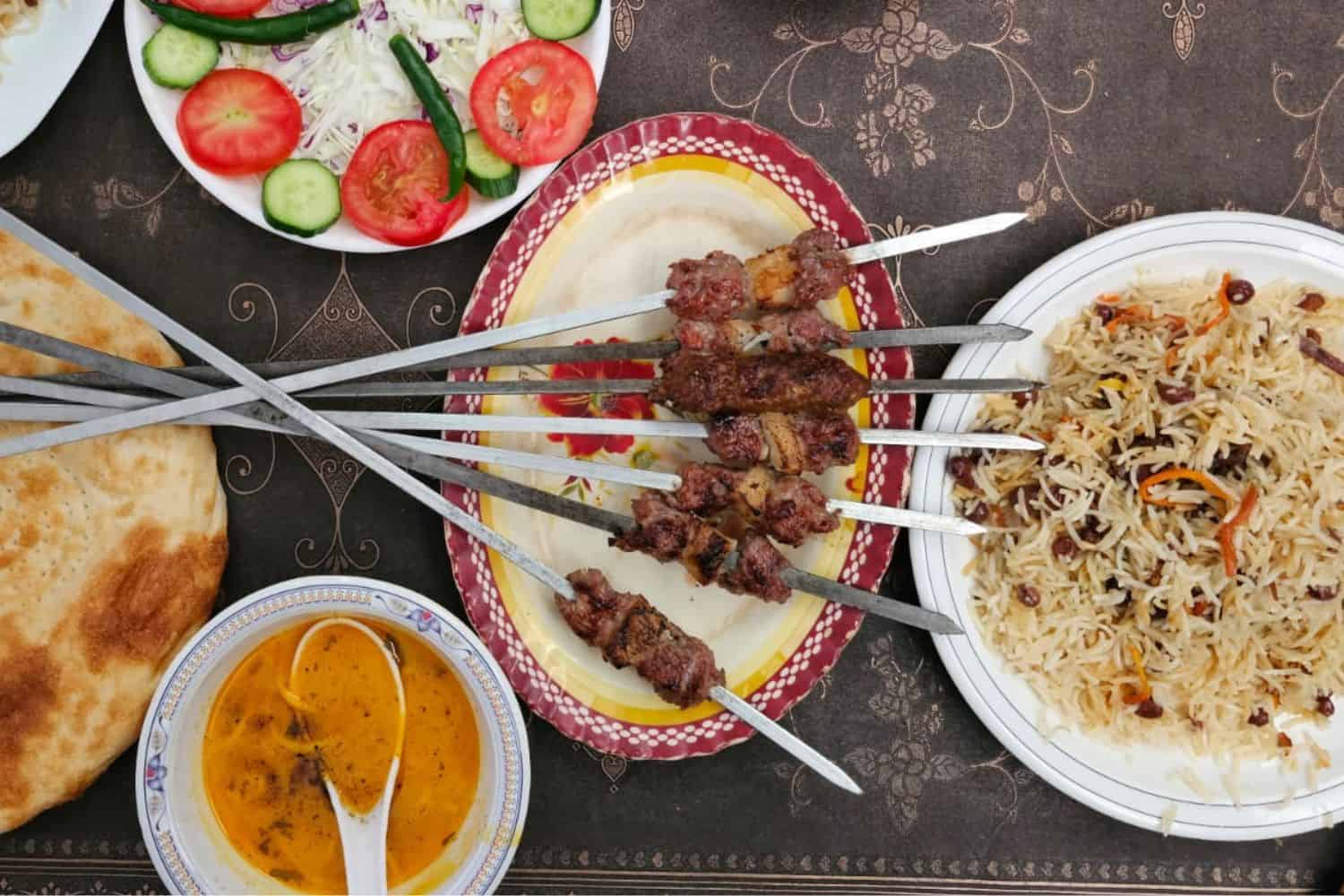Food Trucks For Corporate Events: A Comprehensive Guide to Modern Corporate Catering pickup.truckstrend.com
In an era defined by innovation, flexibility, and unique experiences, the landscape of corporate event planning is undergoing a delightful transformation. Gone are the days when bland buffets and predictable banquet halls were the sole options for company gatherings. Enter the vibrant, versatile, and utterly delicious world of Food Trucks For Corporate Events. These mobile culinary powerhouses are redefining corporate catering, offering an exciting alternative that promises not just a meal, but an engaging and memorable experience for employees, clients, and partners alike.
This comprehensive guide delves into why food trucks are becoming the catering solution of choice for forward-thinking organizations, offering practical advice, important considerations, and actionable insights to help you flawlessly integrate them into your next corporate function.
Food Trucks For Corporate Events: A Comprehensive Guide to Modern Corporate Catering
Why Choose Food Trucks for Your Corporate Event? The Irresistible Benefits
The shift towards food trucks for corporate events isn’t just a trend; it’s a strategic move that delivers a multitude of benefits, elevating the overall event experience.
- Unparalleled Variety & Customization: Food trucks represent a kaleidoscope of global cuisines, from gourmet tacos and artisanal pizzas to authentic Asian street food, decadent desserts, and healthy organic options. This diversity allows you to cater to a broad spectrum of tastes and dietary preferences (vegetarian, vegan, gluten-free, halal, kosher-style) with ease, ensuring everyone finds something they love. Many trucks also offer custom menu options tailored to your event’s theme or specific dietary needs.
- Novelty & Engagement: Food trucks inherently bring a sense of excitement and novelty. The vibrant visuals, the aroma of freshly cooked food, and the interactive experience of ordering directly from the truck create a buzz that traditional catering often lacks. It fosters a more relaxed, communal atmosphere, encouraging interaction and breaking down typical corporate barriers.
- Flexibility & Convenience: Food trucks are self-contained kitchens on wheels, making them incredibly adaptable. They can operate in various outdoor settings – office parking lots, corporate campuses, parks, or even large indoor venues with proper ventilation and access. This eliminates the need for extensive kitchen setup, reduces cleanup for the event organizer, and provides on-site cooking, ensuring fresh, hot food is served directly to guests.
- Cost-Effectiveness (Potentially): While prices vary, food trucks can often be a more cost-effective solution than full-service catering, especially for specific menu types or events where a sit-down meal isn’t required. You pay for the food and the service, without the extensive overheads of waitstaff, table settings, and extensive kitchen rentals.
- Brand Alignment & Modern Image: Opting for food trucks signals a modern, innovative, and approachable corporate culture. It demonstrates a willingness to embrace new trends and provide a unique, employee-centric experience, which can positively impact your company’s image among staff, clients, and potential recruits.
- Operational Efficiency: With minimal setup and teardown, food trucks offer an efficient catering solution. They arrive, set up quickly, serve, and depart, streamlining the logistical aspects of your event.

Types of Corporate Events Suited for Food Trucks
Food trucks are incredibly versatile and can enhance a wide array of corporate gatherings:
- Employee Appreciation Days/Company Picnics: A perfect fit for a relaxed, fun atmosphere, offering diverse choices to reward your team.
- Product Launches & Marketing Events: Create a memorable experience that aligns with an innovative product or brand, drawing attendees and generating buzz.
- Client Appreciation Events: Offer a unique and engaging way to thank valued clients, providing a high-quality, memorable meal.
- Team Building Days: Fuel outdoor activities and foster camaraderie with a casual, interactive dining experience.
- Holiday Parties: A festive and less formal alternative to traditional holiday dinners, especially for daytime events.
- Conferences & Trade Shows: Provide convenient, quick, and varied meal options for attendees, particularly in outdoor exhibition spaces.
- Office Lunches/Weekly Treats: A fantastic way to boost morale, provide convenient lunch options, or celebrate small wins on a regular basis.
- Grand Openings & Groundbreakings: Offer refreshments and a festive touch to significant company milestones.


Planning Your Food Truck Corporate Event: A Step-by-Step Guide
Successfully integrating food trucks into your corporate event requires careful planning. Follow these steps for a smooth experience:
-
Define Your Event Goals & Budget:
- Guest Count: How many people will attend? This dictates the number of trucks needed and food quantity.
- Event Type & Tone: Is it a casual picnic or a more upscale client event? This influences truck selection.
- Desired Cuisine & Dietary Needs: What kind of food are you looking for? What dietary restrictions do you need to accommodate?
- Budget: Establish a realistic budget per person or for the total catering cost.
-
Research & Select Food Trucks:
- Online Directories: Websites like Roaming Hunger, FoodTrucksIn, or local food truck associations are great starting points.
- Recommendations: Ask for referrals from other event planners or businesses.
- Review Menus & Photos: Evaluate their offerings, presentation, and align with your event theme.
- Check Reviews & Reputation: Look for consistent positive feedback on food quality, service, and professionalism.
-
Vet Logistics & Requirements:
- Power: Do the trucks require external power or do they have their own generators? Ensure your venue can provide sufficient power or that generators are permitted and quiet enough.
- Space: Confirm the footprint of each truck (usually 20-30 feet long, 10 feet wide, 12 feet high) and ensure adequate space for serving lines, guest flow, and seating if desired.
- Access: Can the trucks easily access the event area? Are there any height or weight restrictions?
-
Menu Planning & Customization:
- Variety: If hiring multiple trucks, ensure a good mix of cuisines.
- Dietary Accommodation: Clearly communicate all dietary restrictions and allergies to the chosen trucks. Ask them how they handle cross-contamination.
- Service Style: Will it be individual orders, a limited menu, or pre-paid vouchers?
- Portion Sizes: Discuss expected portion sizes and ensure they are adequate for your guests.
- Speed of Service: How quickly can they serve your anticipated crowd?
-
Booking & Contracts:
- Detailed Quotes: Get written quotes that include all fees (food, service, travel, minimums).
- Clear Terms: Ensure the contract specifies dates, times, location, menu, pricing, payment schedule, cancellation policy, and insurance requirements.
- Deposit: Be prepared to pay a deposit to secure the booking.
-
On-Site Coordination:
- Arrival & Setup Times: Confirm precise arrival, setup, service, and departure times.
- Point Person: Designate an on-site contact for the food truck operators.
- Waste Management: Plan for sufficient trash and recycling bins near the food trucks.
- Guest Flow: Consider how guests will move through the serving area to avoid bottlenecks.
-
Payment & Gratuity: Clarify the payment method and timing. Discuss gratuity – whether it’s included, added, or left to individual discretion.
Important Considerations for a Smooth Experience
To ensure your food truck event runs flawlessly, keep these critical factors in mind:
- Logistics are Key:
- Power: Most trucks need 20-50 amp dedicated circuits, or they bring generators. Confirm this early.
- Space: Account for the truck itself, open serving windows, and queuing space.
- Accessibility: Ensure trucks can easily drive to and park in the designated area.
- Permits & Regulations:
- Local Health Codes: Food trucks must comply with local health department regulations.
- Fire Safety: Ensure proper clearance from buildings and fire exits.
- Noise Ordinances: Generators can be noisy; check local rules if in a residential or quiet area.
- Business Permits: Confirm the trucks are properly licensed to operate in your specific municipality.
- Weather Contingency: For outdoor events, have a Plan B for inclement weather (tents, indoor backup, or a rain date).
- Dietary Restrictions & Allergies: This cannot be stressed enough. Discuss your guests’ needs in detail with the truck operators. Ask about allergen protocols.
- Waste Management: Food trucks generate waste (packaging, food scraps). Ensure you have ample and clearly marked trash and recycling bins.
- Service Speed & Capacity: Discuss the truck’s ability to serve your anticipated number of guests within the desired timeframe. For large crowds, multiple trucks or pre-ordering systems might be necessary.
- Insurance: Always verify that the food truck carries adequate liability insurance. Request a certificate of insurance naming your company as an additional insured.
- Restrooms & Handwashing: While trucks have internal handwashing, consider providing accessible restrooms for guests.
- Seating & Shade: If guests will be eating on-site, provide comfortable seating, tables, and shade (especially for daytime summer events).
- Beverages: Most food trucks focus solely on food. Plan for a separate beverage station (water, sodas, coffee, etc.).
Tips for Success
- Book Early: Popular food trucks, especially during peak seasons, get booked quickly.
- Taste Test: If feasible, sample the food beforehand to ensure quality and taste align with your expectations.
- Clear Communication: Maintain open and frequent communication with the food truck vendor from initial inquiry to post-event follow-up.
- Overestimate Slightly: It’s better to have a little too much food than not enough.
- Consider Vouchers/Tickets: For larger events, pre-paid vouchers or a ticketing system can streamline service and manage costs.
- On-Site Point Person: Designate someone from your team to be the main contact for the food truck operators on the day of the event.
- Gather Feedback: After the event, solicit feedback from attendees to gauge satisfaction and inform future catering decisions.
Potential Challenges & Solutions
While food trucks offer many advantages, it’s wise to be aware of potential challenges and how to mitigate them:
- Challenge: Limited Menu Variety (if only one truck).
- Solution: Hire multiple trucks offering different cuisines, or choose a single truck with a very broad menu.
- Challenge: Weather Dependency for Outdoor Events.
- Solution: Implement a robust weather contingency plan (tents, indoor backup, flexible rescheduling options).
- Challenge: Long Lines & Slow Service.
- Solution: Book multiple trucks for large crowds (one truck per 50-75 guests is a good rule of thumb), stagger service times, or explore pre-order systems.
- Challenge: Power or Space Issues at the Venue.
- Solution: Thoroughly vet the venue’s capabilities and communicate truck requirements well in advance. Rent generators if needed.
- Challenge: Permitting and Regulatory Complexity.
- Solution: Start the planning process early, work with experienced food truck operators who are familiar with local regulations, or consider using an event planning company that specializes in food trucks.
- Challenge: Waste Management Overwhelm.
- Solution: Provide ample trash and recycling bins, and consider hiring additional clean-up staff or arranging for waste removal services.
Food Truck Corporate Event Pricing Guide (Estimates)
Pricing for food truck services can vary significantly based on location, cuisine type, menu complexity, duration of service, and the number of guests. The following table provides general estimates to help with budgeting.
| Service Type | Description | Typical Price Range (US$) | Key Factors Influencing Price |
|---|---|---|---|
| Minimum Booking Fee | Base fee to secure the truck for a private event, regardless of food consumed. | $500 – $1,500+ | Location, truck popularity, day of the week, duration. |
| Per Person (Entree) | Cost per guest for a main dish (e.g., taco plate, burger, pizza slice). | $12 – $30+ per person | Cuisine type (gourmet vs. basic), number of choices, portion size, ingredients. |
| Per Person (Appetizers/Desserts) | Add-on for smaller bites or sweet treats. | $5 – $15+ per person | Complexity, variety, portion size. |
| Hourly Rate (Limited Use) | Some trucks may offer an hourly rate for specific services or smaller events. | $100 – $300+ per hour (plus food) | Duration, type of service, demand. |
| Multiple Trucks | Hiring more than one truck for variety or larger crowds. | Minimum fee per truck + per person food cost | Number of trucks, total guest count. |
| Drinks/Beverages | Often separate; may include water, soda, iced tea, specialty drinks. | $2 – $8+ per person | Type of beverages, unlimited refills vs. per-drink. |
| Travel Fees | For events outside a certain radius from the truck’s home base. | $50 – $200+ (flat or per mile) | Distance, fuel costs, time. |
| Customization/Branding | Special menu items, branded packaging, or truck wrap. | Varies widely ($100 – $1,000+) | Extent of customization, materials, design work. |
| Staffing/Gratiuty | For additional servers or a standard gratuity. | 15% – 20% of total bill (or hourly rate) | Included in quote or added separately. |
| Permits/Fees | Any specific local permits required by the municipality for the event. | Varies ($0 – $500+) | Local regulations, type of event, venue. |
Note: These are estimates. Always obtain detailed, written quotes from specific vendors for accurate pricing.
Frequently Asked Questions (FAQ)
Q1: How far in advance should I book a food truck for a corporate event?
A1: It’s recommended to book at least 2-3 months in advance, especially for popular trucks or during peak event seasons (spring, summer, holidays). For larger events or multiple trucks, 4-6 months is even better.
Q2: Can food trucks accommodate dietary restrictions and allergies?
A2: Most professional food trucks are adept at handling common dietary restrictions (vegetarian, vegan, gluten-free) if notified in advance. Always communicate specific allergies clearly and ask about their cross-contamination protocols.
Q3: Do food trucks provide tables, chairs, or tents for guests?
A3: Generally, no. Food trucks are self-contained kitchens. You will be responsible for providing seating, tables, tents for shade/rain, and any other event infrastructure.
Q4: What if it rains or there’s bad weather on the day of the event?
A4: Discuss the food truck’s weather policy and cancellation terms when booking. Have a contingency plan, such as a large tent, an indoor backup location, or a rain date if possible.
Q5: How many food trucks do I need for X number of guests?
A5: A good rule of thumb is one food truck per 50-75 guests to ensure efficient service and reduce wait times. For greater variety, you might opt for two trucks for 100 guests, allowing guests more choice.
Q6: Do I need special permits for food trucks at my corporate event?
A6: This varies by municipality and venue. You may need permits related to health and safety, fire, noise, or special event permits. Reputable food truck operators will typically have their own necessary operating licenses, but it’s crucial to check local regulations for the event location itself. Your venue coordinator can often provide guidance.
Q7: Is hiring food trucks cheaper than traditional catering?
A7: It can be, especially for certain types of menus and service styles. While a single food truck might have a minimum booking fee comparable to a small traditional caterer, the "per person" cost for specific cuisines can often be lower, and you typically save on setup, waitstaff, and extensive rental fees. However, for very high-end, multi-course meals, traditional catering might still be more economical.
Conclusion
Food trucks for corporate events are more than just a passing trend; they represent a fundamental shift in how businesses approach catering, emphasizing experience, variety, and convenience. By embracing these mobile culinary delights, companies can transform ordinary gatherings into extraordinary experiences that foster connection, boost morale, and leave a lasting, positive impression. With careful planning and attention to detail, integrating food trucks into your next corporate event will undoubtedly be a recipe for success, creating a memorable occasion that delights every palate and leaves attendees buzzing with satisfaction.
